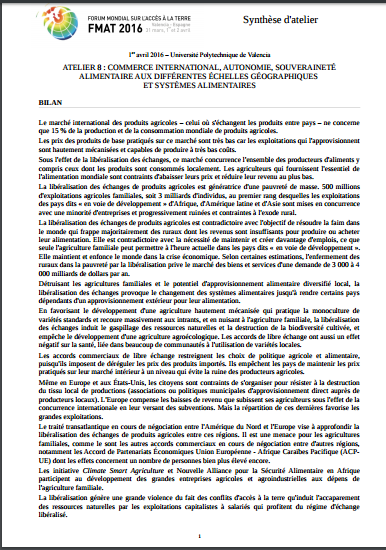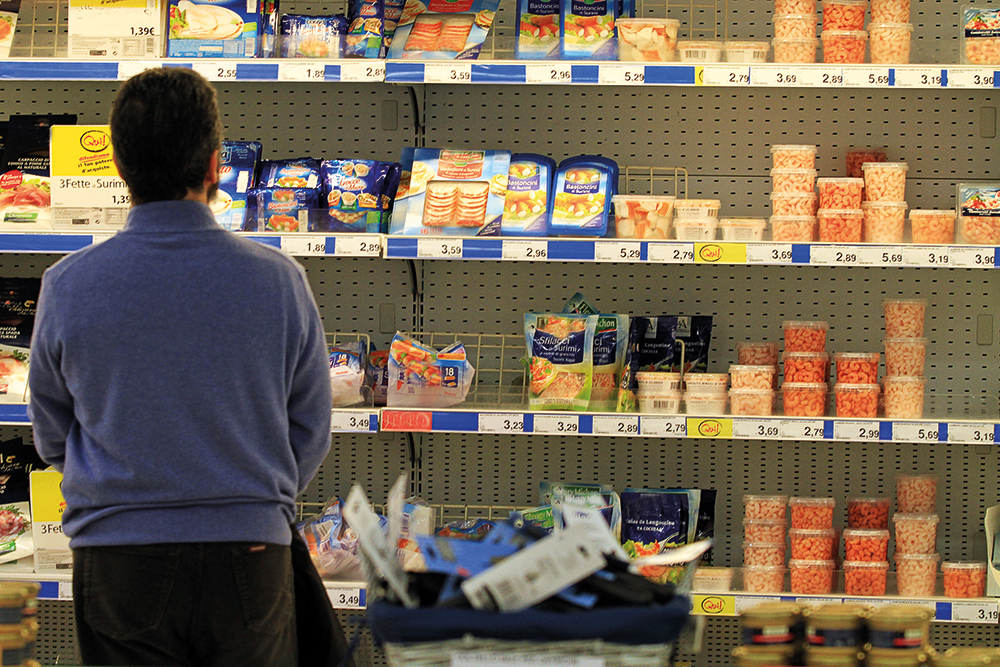ATELIER 8 : COMMERCE INTERNATIONAL, AUTONOMIE, SOUVERAINETÉ ALIMENTAIRE AUX DIFFÉRENTES ÉCHELLES GÉOGRAPHIQUES ET SYSTÈMES ALIMENTAIRES
Le marché international des produits agricoles – celui où s’échangent les produits entre pays – ne concerne que 15 % de la production et de la consommation mondiale de produits agricoles.
Les prix des produits de base pratiqués sur ce marché sont très bas car les exploitations qui l’approvisionnent sont hautement mécanisées et capables de produire à très bas coûts.








